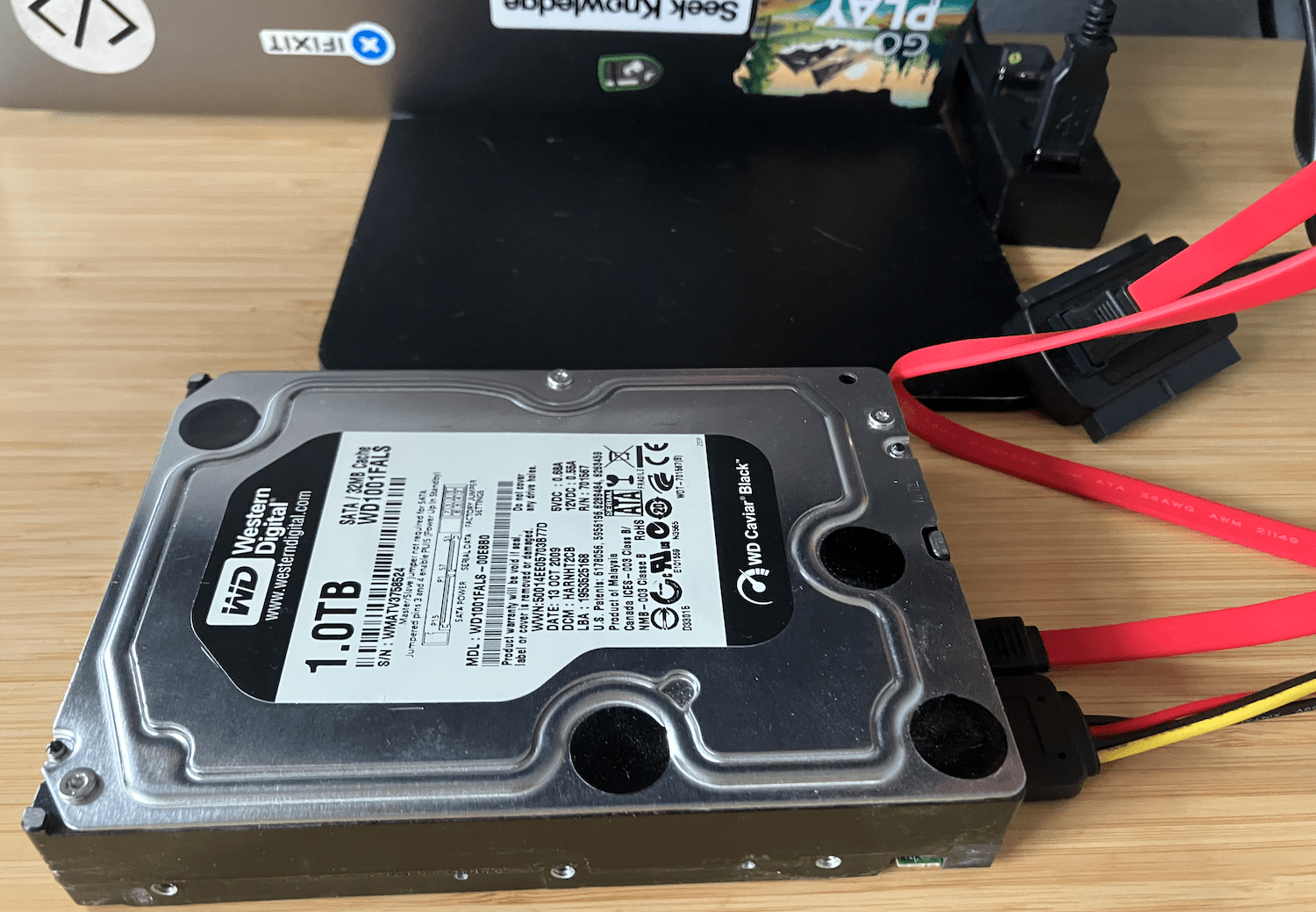Even when an old computer won’t start up anymore, the hard drive is still in there. From financial data to private photos, that drive could hold all sorts of private information.
It makes sense, given that context, that you might be nervous about just dropping it off at the recyclers. We’ve talked about how to recover files from a dead computer, after all, and the advice there shows that the information can just as easily be grabbed by anyone else. Yes, most recyclers are generally pretty strict about not allowing that sort of thing, but it’s understandable if you’d rather wipe the drive yourself.
With that in mind, here’s how to completely wipe any old hard drive you might have lying around.
Connect the Hard Drive to Your Computer
The first thing you need to do is connect your old hard drive to your new computer. The easiest way to do this is using an external hard drive reader. These devices plug into the hard drive on one end and into your computer via USB on the other, while also powering the drive. Hard drive readers can be found in most computer repair shops or at online retailers like Amazon. They generally cost between $20 and $30.
Make sure that the adapter you buy can connect to the hard drive you want to use. Most hard drives made in the last two decades use SATA connectors while some older drives use PATA. You can tell the difference at a glance—SATA drives have two L-shaped connectors while PATA ones have a bunch of smaller spikes. Many hard drive connectors support both, so just pay attention while purchasing.

Once you have the connector, things are easy—you just need to plug the drive into the adapter and the adapter into your computer. What to do next depends on what kind of computer you’re using.
Securely Wipe a Hard Drive on Windows
Connect your hard drive to a Windows computer and it should show up in File Explorer, in the left-hand sidebar. Right-click the drive and click Format.

This will open the format window. Make sure to uncheck the Quick Format option and then click Start.

Why not just use the Quick Format option? Because it doesn’t overwrite the files, meaning anyone using file recovery software will be able to find them. Windows will overwrite every single bit on the drive, which is going to take a while, but it will be very hard for anyone to recover files. Note that this process could take hours, particularly if you’re formatting a large drive. I recommend you leave it running overnight.
If your drive doesn’t show up in Windows Explorer you can try using the Disk Management tool instead—it will show all devices, not just partitions that Windows can mount. You can find this tool in the Control Panel but it’s faster to just open the start menu and search for it. After it opens you can right-click the partition or drive you’d like to wipe to bring up the format tool.
Securely Wipe a Hard Drive On a Mac
Mac users can completely wipe drives using the Disk Utility. You can find this application by opening Finder and heading to the Applications folder. The application is in a sub-folder named Utilities.
Click the drive in the left-hand panel and then click the Erase button.

You will be asked if you want to erase the drive. Be sure to click the Security Options button.

From here you can select how many passes you’d like your Mac to write over the drive. The left-most option, Fastest, won’t overwrite your files. The second option will overwrite them once, which should be enough for most people, though you could opt for more if you’re paranoid.

Note that this process will likely take hours, especially for a larger hard drive. It will take even longer if you opt for the most secure option. When the process is done, though, it will be very difficult for anyone to recover the files.


